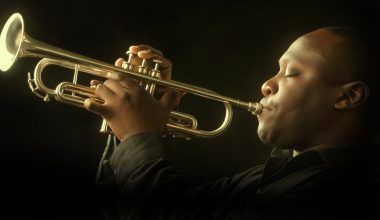If you’ve ever dreamed of playing an instrument flawlessly, composing captivating songs, or simply becoming a better musician, you’re not alone. Music is a universal language that connects people, inspires emotions, and fuels creativity. But mastering music requires dedication, patience, and the right approach. In this guide, we’ll explore how to master music and make your musical journey enjoyable and fulfilling.
Discover Your Passion for Music
Before diving into techniques and practice routines, take a moment to reflect on why you want to master music. Are you inspired by your favorite artists? Do you want to express yourself creatively? Understanding your “why” will keep you motivated even when progress feels slow. Your passion is the fuel that will keep you going.
Ask yourself:
- What style of music resonates with me the most?
- Which instrument do I feel drawn to?
- What do I hope to achieve through music?
Once you’ve identified your goals and interests, it becomes easier to chart a path forward. Remember, the journey is as important as the destination.
Choose the Right Instrument
Picking the right instrument is crucial. If you’re not sure where to start, try experimenting with a few options. Visit a music store, borrow instruments from friends, or take trial lessons. Think about what feels natural to you—sometimes, the right instrument just “clicks.”
Consider factors like:
- Your favorite genres of music
- Portability and cost of the instrument
- The sound that inspires you
For instance, if you love classical music, you might gravitate toward the piano or violin. If rock is your thing, perhaps the guitar or drums will suit you better. Whatever you choose, make sure it excites you—that excitement will keep you practicing.
Learn the Basics First
When you’re starting out, it’s tempting to dive into complex songs and techniques. However, mastering music begins with a solid foundation. Take the time to learn the basics, as these will support your growth as a musician.
Start with:
- Understanding musical notes and their values
- Learning scales and chords
- Familiarizing yourself with rhythm and timing
Don’t rush this step. The fundamentals might seem simple, but they’re the building blocks of everything you’ll achieve in music.
Practice Regularly and Consistently
Consistency is key when it comes to mastering music. Even 20 minutes a day can make a significant difference over time. The secret lies in making practice a daily habit. Set aside a specific time each day to focus solely on your music.
Try to:
- Create a dedicated practice space that minimizes distractions
- Break your practice sessions into smaller, focused segments
- Use a metronome to improve timing and rhythm
Remember, it’s not about how long you practice but how effectively you do it. Quality always beats quantity.
Find a Teacher or Mentor
While self-teaching is an option, having a skilled teacher or mentor can accelerate your progress. A good instructor can provide personalized feedback, correct your mistakes, and introduce you to new techniques.
If hiring a teacher isn’t feasible, consider online resources. Platforms like YouTube, Udemy, and MasterClass offer excellent tutorials. You can also join music communities where experienced musicians share tips and answer questions.
Embrace Technology
In today’s world, technology can be a game-changer for learning music. There are countless apps and software programs designed to make mastering music easier and more engaging.
Some popular options include:
- Yousician: Interactive lessons for various instruments
- GarageBand: For composing and recording music
- MuseScore: A tool for writing sheet music
These tools can complement your learning process and help you stay motivated.
Listen Actively to Music
To master music, you need to immerse yourself in it. Listening actively means paying attention to details like melody, harmony, rhythm, and dynamics. Try to analyze the songs you love and understand what makes them special.
Ask yourself:
- What instruments are being used?
- How do the chords progress?
- What emotions does the song evoke, and why?
By studying music with a critical ear, you’ll develop a deeper understanding of its structure and nuances.
Play with Others
Music is meant to be shared. Playing with others not only enhances your skills but also makes the process more enjoyable. Join a band, attend jam sessions, or simply play with friends.
Collaborating with other musicians teaches you:
- How to adapt to different styles and tempos
- The importance of timing and coordination
- How to improvise and think on your feet
These experiences can greatly enrich your musical journey.
Stay Inspired and Keep Learning
Even the most accomplished musicians never stop learning. Stay curious and open to new challenges. Experiment with different genres, instruments, and techniques. Take inspiration from your favorite artists and strive to create your unique sound.
Whenever you feel stuck, remind yourself of your progress so far. Reflect on how far you’ve come, and use that as motivation to keep going.
Overcoming Challenges
Mastering music isn’t without its challenges. You might face plateaus, self-doubt, or even physical fatigue. But every great musician has faced these hurdles—and overcome them.
Here’s how to stay resilient:
- Break down complex tasks into manageable steps
- Celebrate small victories to keep yourself motivated
- Seek support from fellow musicians or mentors
Remember, perseverance is often the difference between success and giving up.
Once you’ve gained confidence, start sharing your music with others. Perform at open mics, post videos online, or play for friends and family. Sharing your art is one of the most rewarding aspects of mastering music.
Not only does performing improve your skills, but it also boosts your confidence. Plus, receiving feedback—whether positive or constructive—can help you grow.
In Conclusion
how to master music is a journey filled with challenges and triumphs. By staying passionate, practicing consistently, and embracing learning opportunities, you’ll make steady progress toward your goals. Whether you’re playing for fun or aiming for a professional career, remember that music is about expressing yourself and connecting with others. Enjoy every step of the process, and let your love for music guide you.
For further reading, explore these related articles:
- The Story of Kesha: A Journey of Music, Strength, and Inspiration
- Exploring the World’s Smallest Speaker: Tiny but Powerful!
For additional resources on music marketing and distribution, visit Deliver My Tune.






